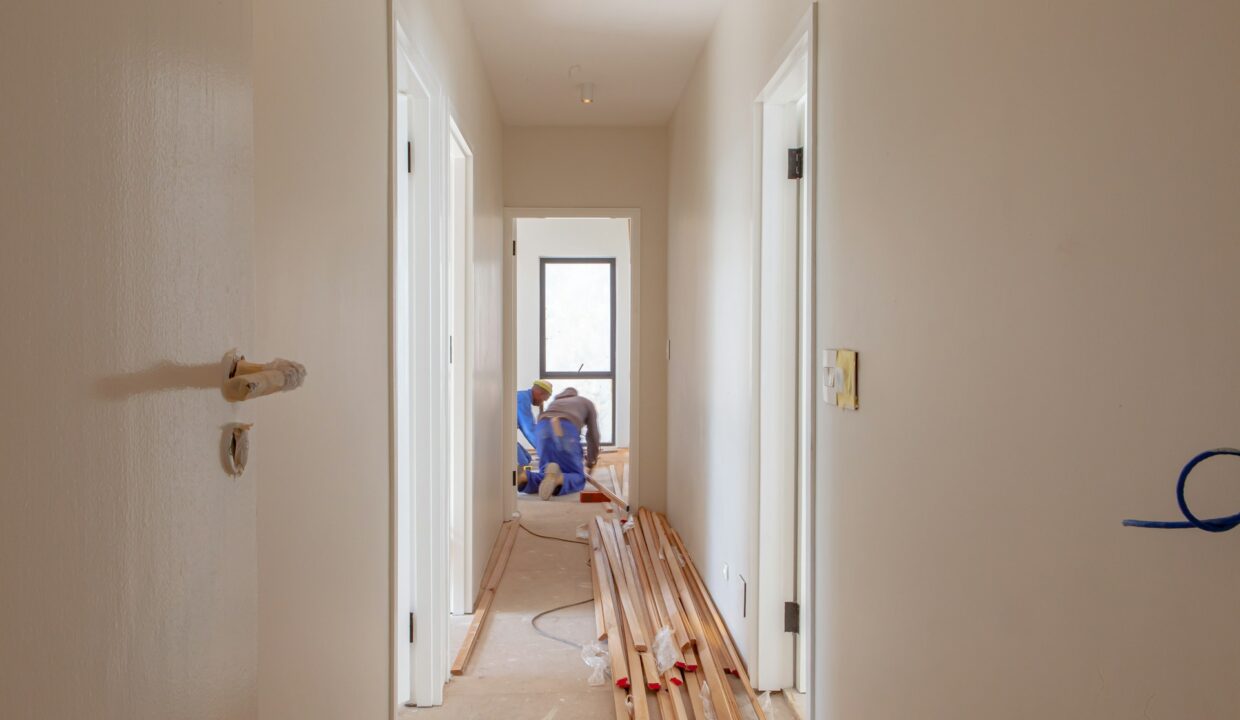
Purchasing a new-build home is a huge decision, and my guide will take you through the entire process—from the perks of brand-new properties to the buying schemes that can help you get onto the property ladder. Whether you’re drawn to energy efficiency, 10-year warranties, or the ability to customize your future home, this guide has everything you need to know.
Key Takeaways:
- Many builders offer off-plan properties, letting you choose your dream home before construction even begins.
- Buyers can often customize design elements such as kitchen worktops, plug socket placement, and even garden landscaping.
- To secure your new-build home, you’ll usually need to pay a reservation fee, typically around £1,000.
- Once you’ve reserved your property, you’ll need to secure a mortgage and hire a solicitor, ensuring the completion date aligns with your mortgage offer, which is usually valid for 3-6 months.
- The time to complete off-plan homes varies and can range from a few months to over a year.
- There are government-backed schemes like Shared Ownership and Deposit Unlock that can make purchasing a new-build more affordable.
- New-build homes in the UK offer benefits like reduced deposits, 10-year warranties, and superior energy efficiency, making them a popular choice for many buyers.
Why Choose a New-Build?
1. Buy Before It’s Built
Many developers sell homes off-plan, which means you can choose your ideal property before construction starts. This can be a fantastic opportunity if you’re buying in a high-demand area or one that you love. To get started, consult a mortgage broker to ensure you can borrow the required amount. Once confirmed, you’ll usually need to pay a reservation fee—around £1,000—to hold the property. After that, you’ll sign contracts and wait for construction to finish.
2. Customize the Design
One of the best parts of buying a new-build is that you often get to personalize aspects of the property. From selecting kitchen countertops to choosing tiling and even garden layouts, new-build developers give you options to make the home your own. Keep in mind that the sooner you reserve your property, the more flexibility you’ll have with customization. However, check the fine print for any extra charges related to design changes.
3. Low Maintenance
New-build homes are great for anyone looking for minimal upkeep. You won’t have to worry about repairs or redecoration for several years since everything is brand new. This is one of the major advantages of choosing new construction over older properties.
4. Freehold Ownership
All new-build homes are sold as freehold, meaning you own both the property and the land it stands on outright. This is an improvement over past practices where some new-build homes were sold as leaseholds, requiring homeowners to pay ground rent and service charges. Freehold ownership means you won’t have to worry about those extra costs.
5. Chain-Free and Flexible
If you’re buying a new-build as a first-time buyer or not selling an existing property, you won’t be part of an upward chain. This means you can move into your new home as soon as it’s ready, without waiting for other transactions to complete.
6. Energy Efficiency
According to research from the House Builders Federation, new-build homeowners could save over £3,100 a year on energy bills compared to older properties. This is largely because most new homes boast excellent energy ratings—85% of new-builds have an EPC rating of A or B, compared to just 4% of older homes. Features like double or triple glazing, superior insulation, and energy-efficient appliances contribute to these savings.
7. Safety First
Modern building regulations ensure that new-build homes meet high safety and security standards. From secure locks to fire safety measures and gated entrances, you can expect a safer environment in new housing developments.
8. Developer Incentives
Many developers offer perks to entice buyers, including paying your stamp duty, contributing to your deposit, or throwing in free appliances and fixtures. Some even offer part-exchange agreements where they buy your current home, making the entire process smoother.
Steps to Buying a New-Build
1. Find Your Property
Most new-build homes are sold off-plan, which means you might only see architectural plans or a show home before making a decision. This allows you to get involved in the building process from the ground up, but it may require patience as you wait for construction to complete.
2. Reserve the Property
Once you’ve found the home you love, you’ll need to pay a reservation fee—usually around £1,000. This secures the property while the paperwork is processed.
3. Handle the Paperwork
You’ll need a conveyancer (property solicitor) to manage the legal side of the purchase. Securing your mortgage is crucial at this point. Unlike buying an existing home, you may face timing challenges as mortgage offers usually last between 3-6 months. Be sure the completion date of the home fits within your mortgage offer period. Some mortgage providers offer flexibility for new-builds, but check with your lender for options.
4. Wait for Completion
The time it takes for an off-plan property to be ready varies—anywhere from a few months to over a year. You’ll be given two dates: the “short stop” (expected completion) and the “long stop” (the final date by which the home must be completed). Ensure you’re happy with these timelines before proceeding.
5. Prepare to Move In
As completion approaches, your solicitor will finalize the paperwork, and you’ll exchange contracts and pay your deposit. A snagging survey is highly recommended to catch any minor defects in the property before moving in. Once everything is in order, you can move into your brand-new home!
Buying Schemes for New-Builds
1. Deposit Unlock
This scheme allows first-time buyers and homeowners to purchase a new-build with just a 5% deposit. It’s available through various builders like Barratt and Vistry, and applies to homes with two or more bedrooms.
2. Shared Ownership
With Shared Ownership, you can purchase a portion of the property through a housing association. You’ll need a smaller deposit and mortgage, but you’ll pay rent on the portion you don’t own. This can be a good option if you’re struggling to save for a full deposit.
3. First Homes
Launched in 2021, the First Homes scheme helps first-time buyers and key workers purchase new homes at a 30-50% discount. To qualify, your household income must be under £80,000 (or £90,000 in London), and the property price must not exceed £250,000 (or £420,000 in London).
4. Warranties and Protection
All new-build homes come with a 10-year warranty, which covers the structural integrity of the building as well as any major defects. Builders must also follow the New Homes Quality Code or the Consumer Code for Home Builders, ensuring transparency and fair treatment for buyers. This protection can give you peace of mind and may also make it easier to secure a mortgage.
5. Checking Your New-Build for Defects
Before moving in, it’s essential to check for any issues, often referred to as “snags.” Here’s what to watch out for:
- Plumbing and electrics
- Brickwork and tiling
- Walls, floors, and ceilings
- Windows, paintwork, and plastering
- Carpentry and fitted furniture
- Gutters and drains
Most developers will address these issues promptly, ensuring your home is in perfect condition.
